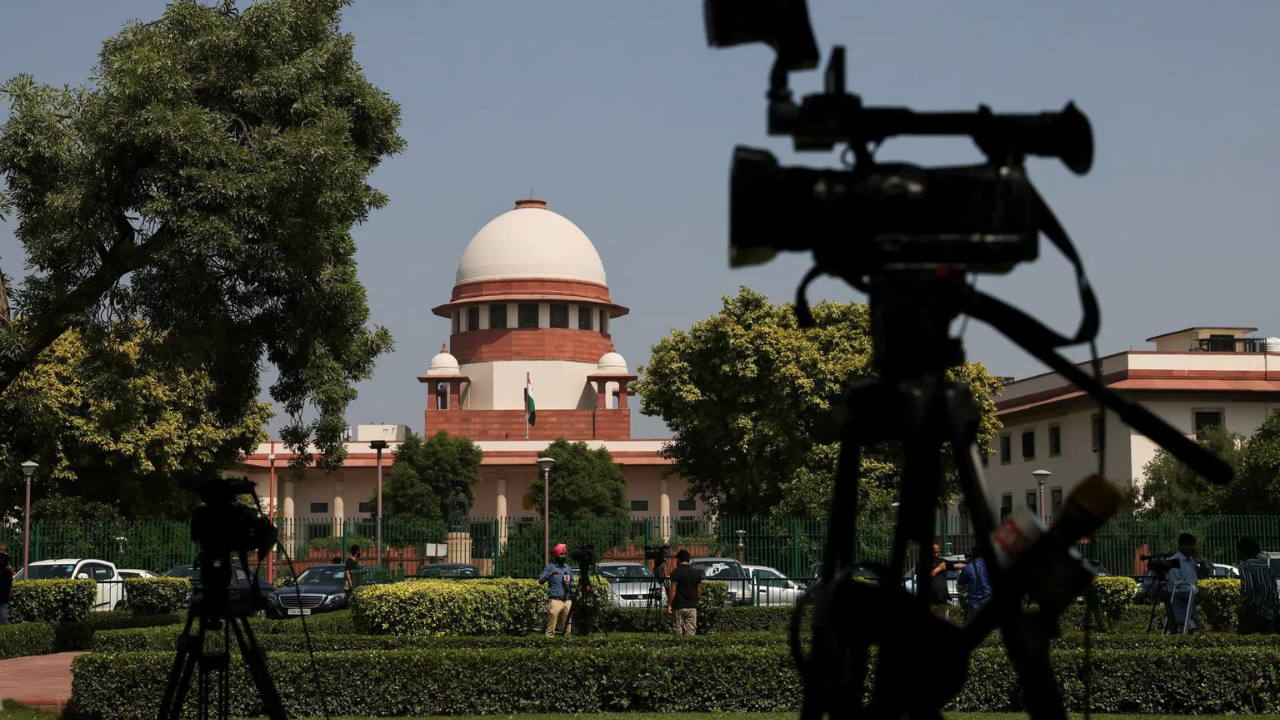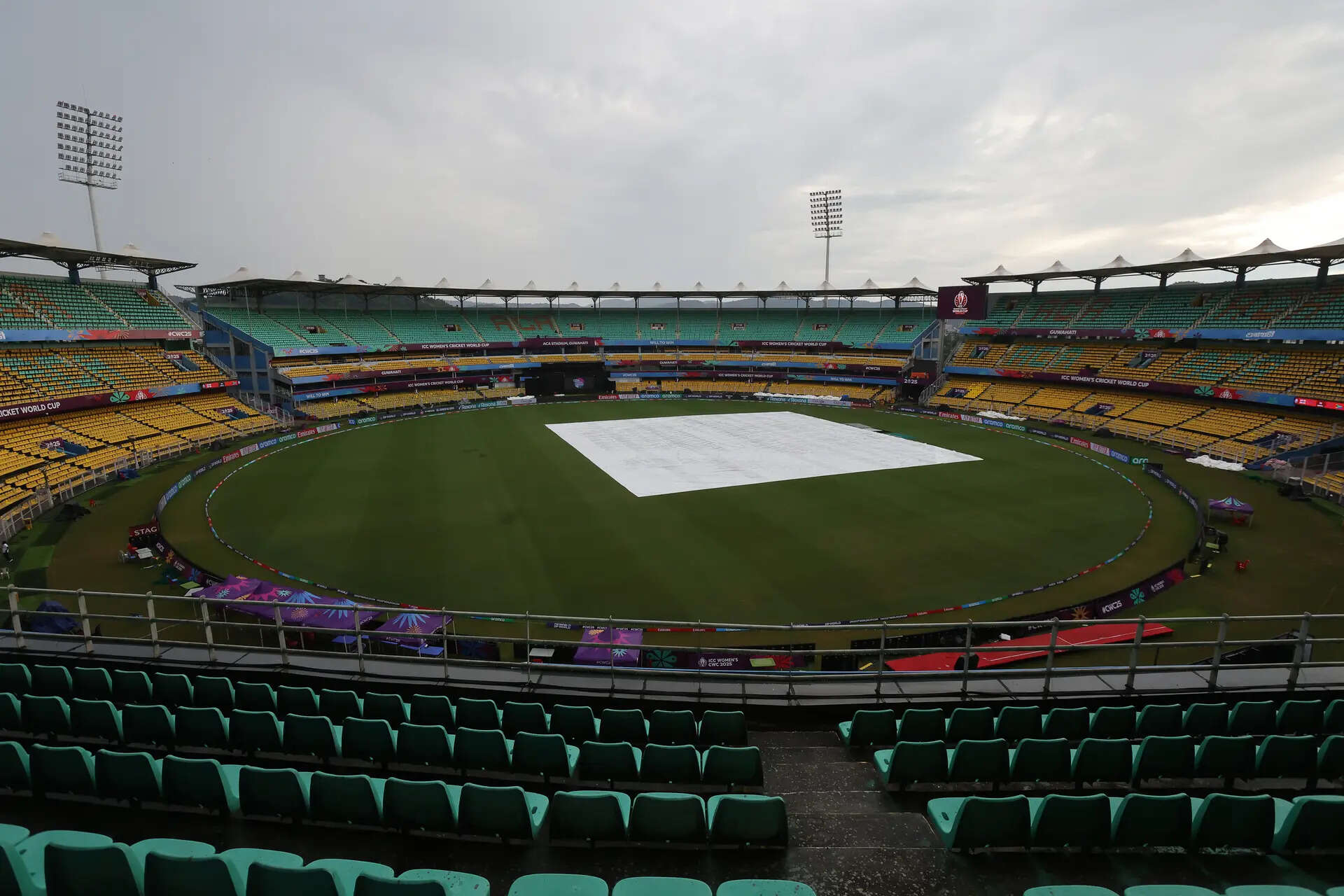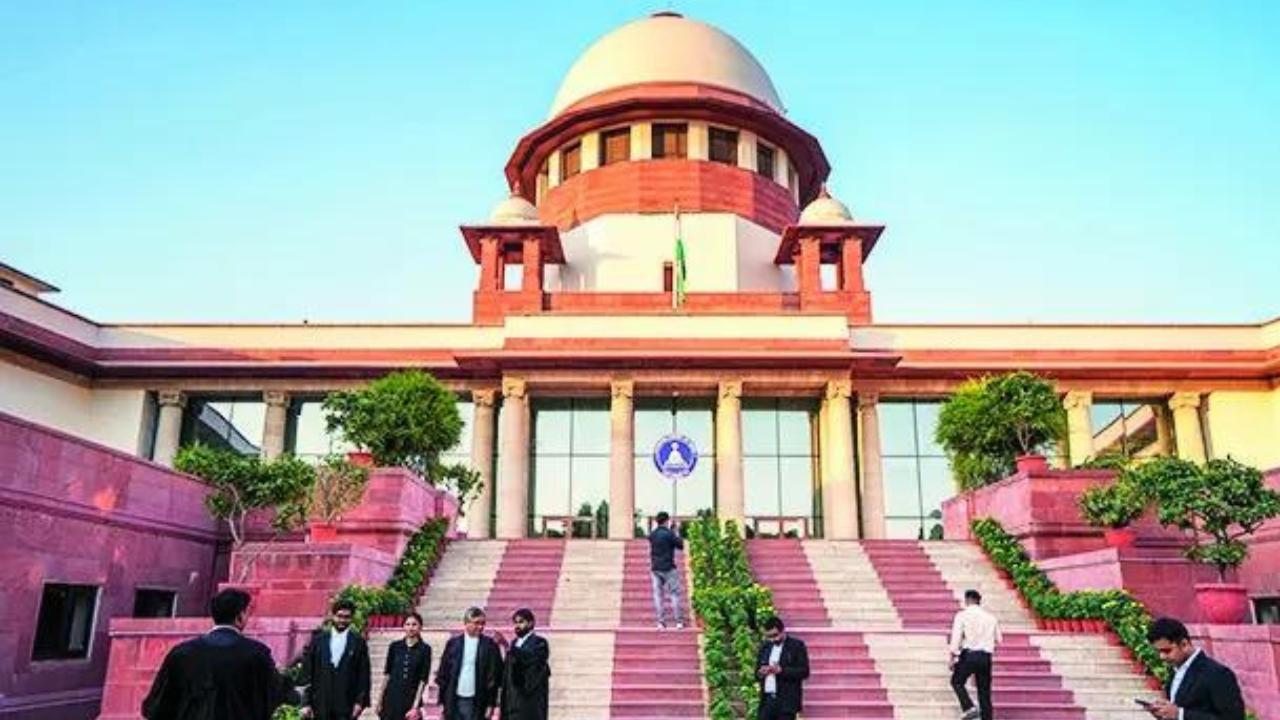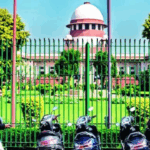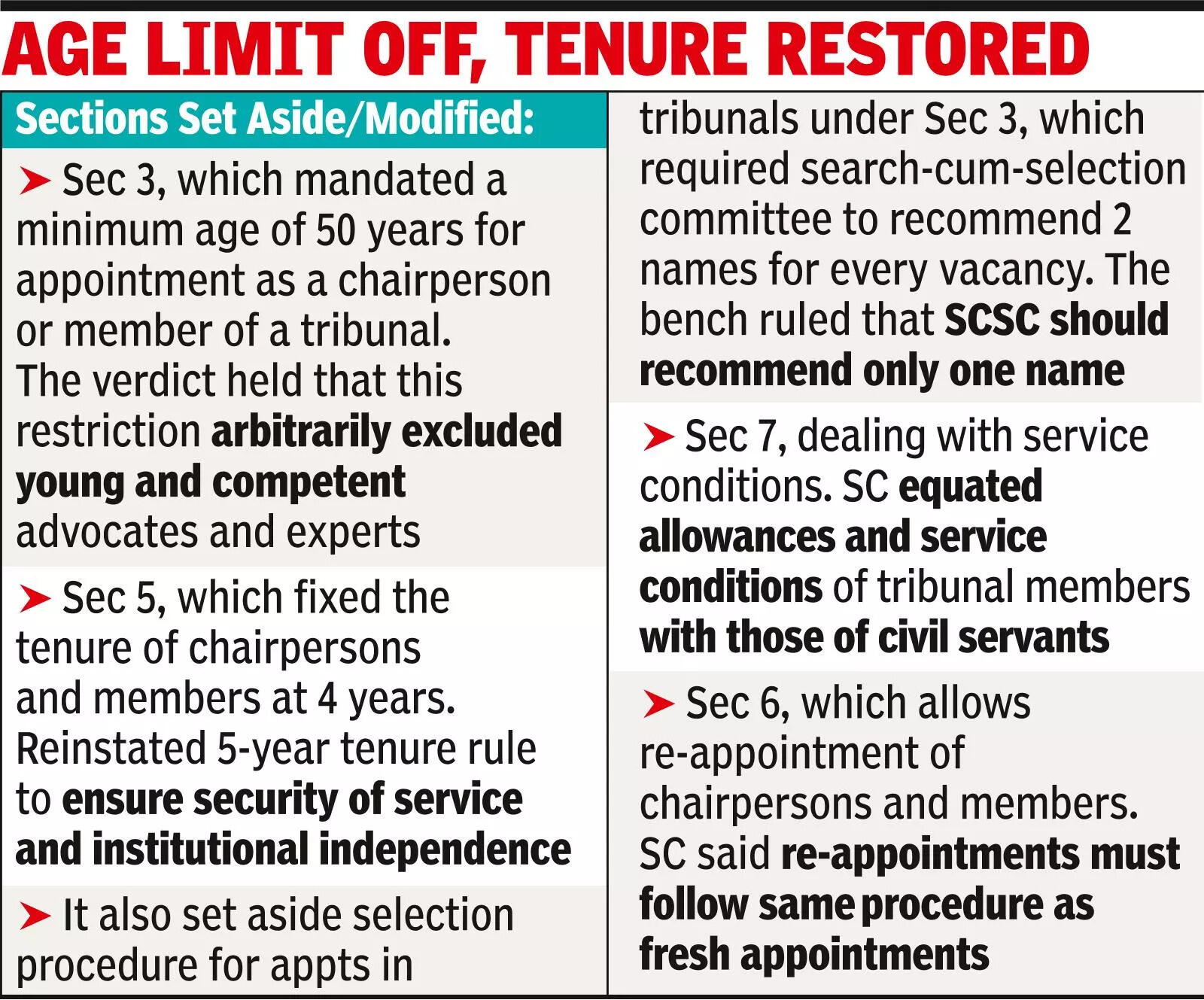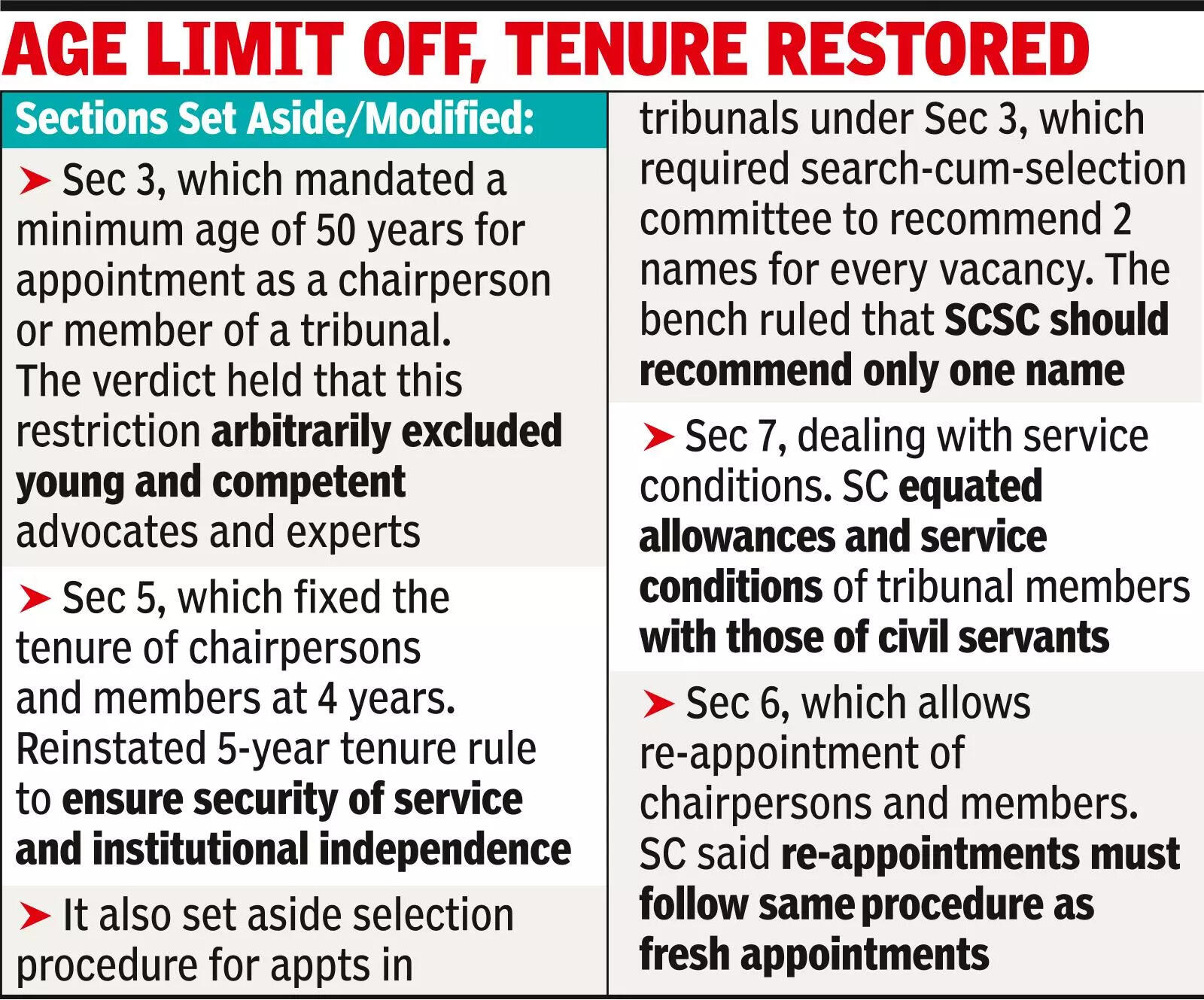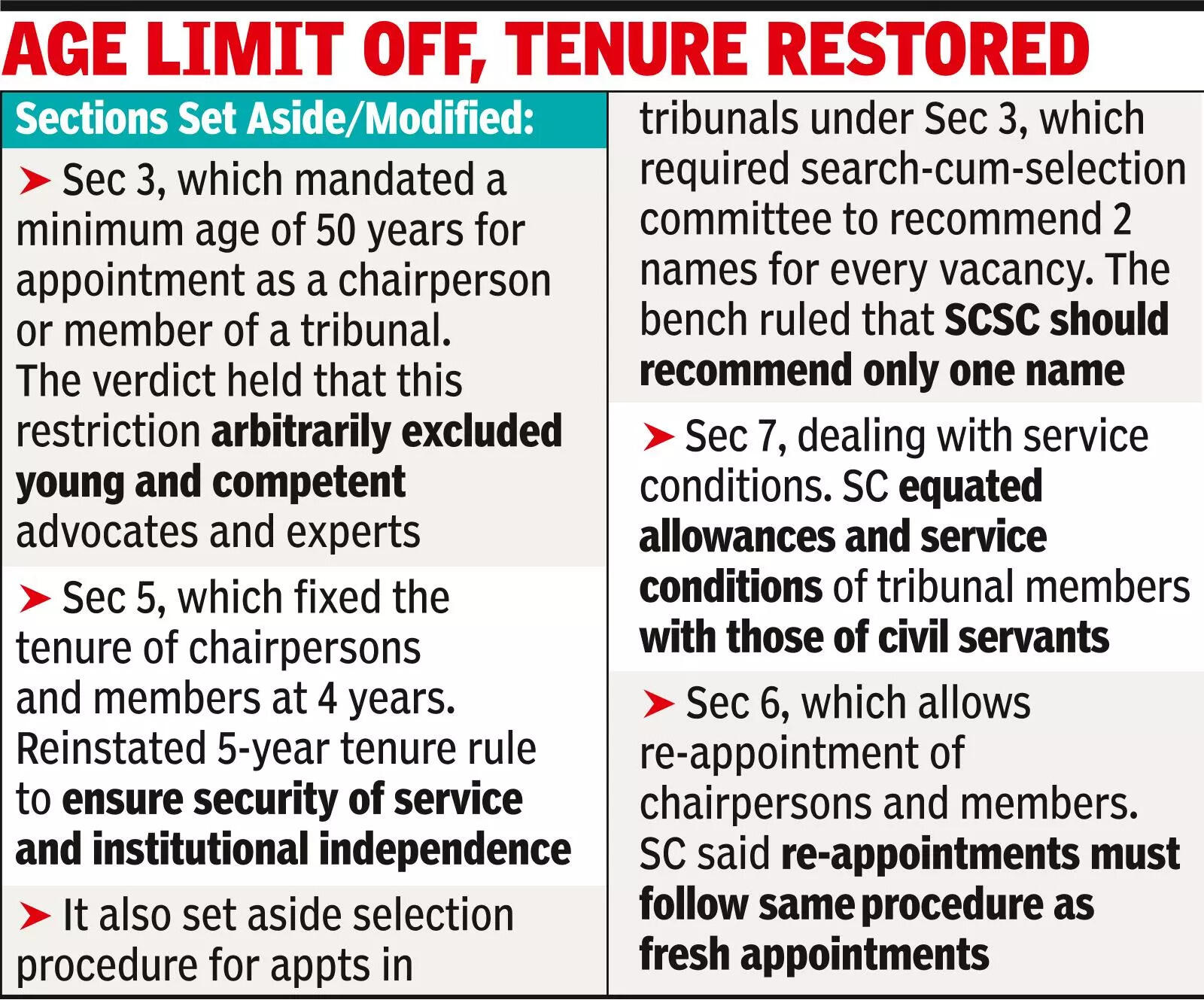NEW DELHI: Supreme Court struck down Wednesday the Tribunal Reforms Act as unconstitutional and slammed the central govt for its repeated attempts to override SC’s consistent rulings to shield the judicial independence of tribunals, which decide disputes in a gamut of regimes – taxation, environment, electricity, telecom and real estate. Days before his retirement, a CJI B R Gavai-led bench deprecated the Centre’s repeated attempts to tinker with the qualifications, tenure and service conditions for chairpersons and members of the tribunals and took umbrage that within weeks of SC striking down the Tribunal Reforms Ordinance in July 2021, the govt tabled a bill in Parliament to enact the law whose provisions were identical to that of the ordinance.
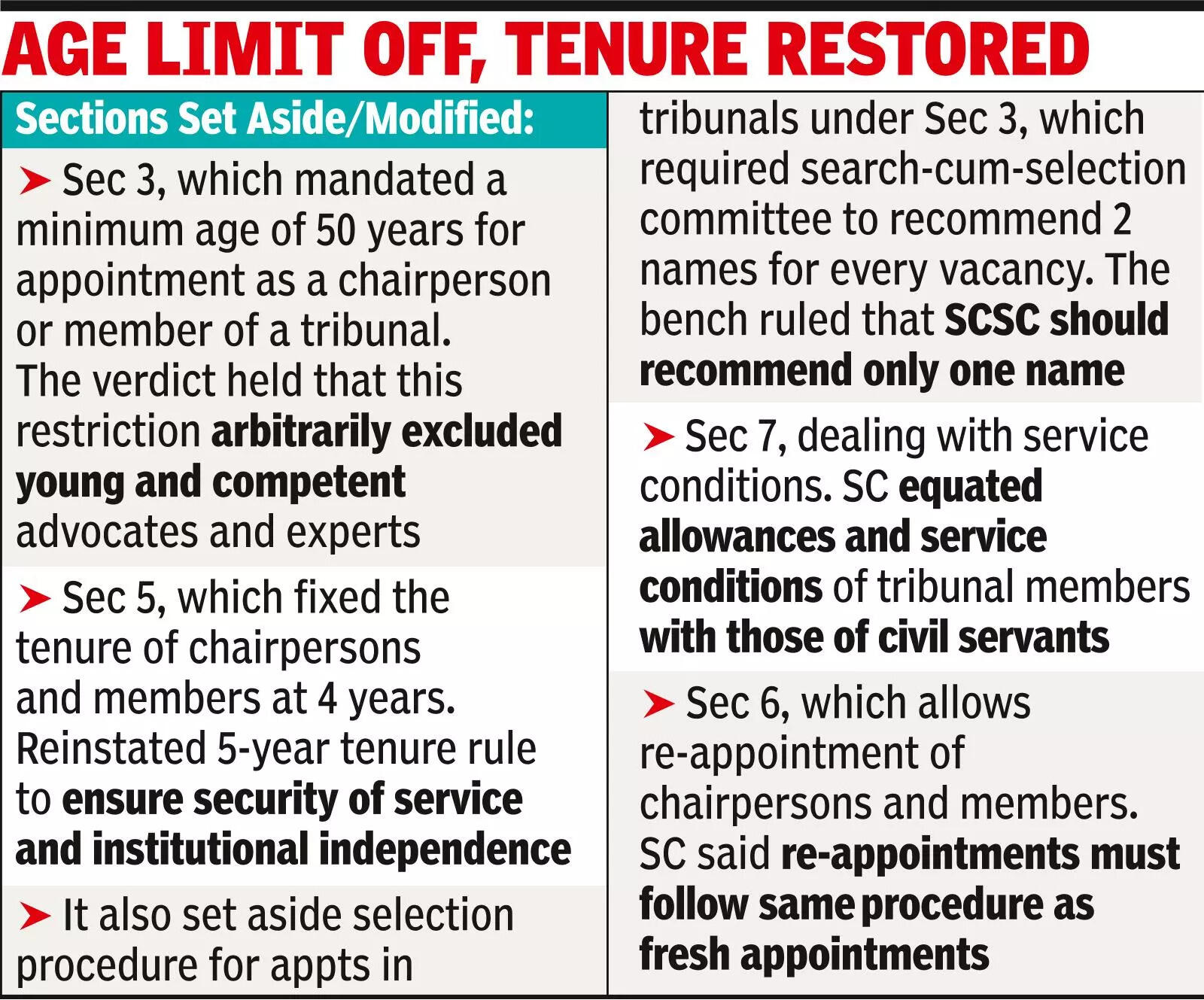
Censuring the govt for “consciously attempting to annul the rulings” by enacting a law that had “cosmetically changed a few provisions” of the annulled law, the bench of CJI Gavai and Justice K Vinod Chandran said, “The Tribunal Reforms Act, 2021 is a replica of the struck-down ordinance; old wine in a new bottle, the wine whets not the judicial palate, but the bottle merely dazzles.” The verdict means that, pending the enactment of a new law, the service conditions of tribunal presidents and members would be governed by their parent Acts. For example, ITAT Act would govern service conditions of ITAT president and members. Writing the judgment, CJI Gavai said, “The provisions of the impugned Act cannot be sustained. They violate the constitutional principles of separation of powers and judicial independence.” SC: Parl’s discretion broad, not absolute The Supreme Court said the Act directly contradicts binding judicial pronouncements that have repeatedly clarified the standards governing the appointment, tenure and functioning of tribunal members. The bench said that the Act, which intended to usher in uniformity in tenure and service conditions of all tribunal members, undermined the constitutional requirements of independence and impartiality of tribunals by enabling the executive to exercise control over them.The Supreme Court said, “Where Parliament reenacts provisions previously struck down without curing the underlying defect, the resulting legislation remains vulnerable to invalidation, not because the Court is imposing its own policy, but because the Constitution itself demands adherence to these structural safeguards.”“The Indian constitutional framework does not subscribe to parliamentary sovereignty, nor does it vest unqualified supremacy in the judiciary. “The architecture of our Constitution is firmly rooted in the principle of constitutional supremacy.”It said that when SC interprets the Constitution and pronounces upon the validity of a law, that pronouncement becomes the authoritative and binding declaration of the law.“Once the court has struck down a provision or issued binding directions after identifying a constitutional defect, Parliament cannot simply override or contradict that judicial decision by re-enacting the very same measure in a different form,” CJI Gavai said.Supreme Court said Parliament’s discretion is broad but not absolute.




